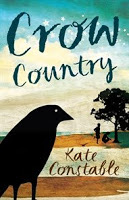 |
| Spanish Vihuelas -Public Domain |
I’m still catching up with World Fantasy Convention panels, which will be up till December 1. Last night I watched a panel on the subject of music and fantasy. I admit I hadn’t heard of any of the panellists, but they were all musicians as well as writers. One was an opera singer, another plays metal, a third was a rapper.
One mentioned the idea of magic systems connected with music, which I think is interesting, and have come across before. The moderator connected music and fantasy with reading your work aloud to yourself, something I do, and it does help, but it’s not music.
While they did mention authors with music in their fantasy, there were quite a few nobody mentioned, so I thought I might talk about some here.
The one I thought should really have been mentioned was Charles De Lint. He’s a musician himself, who plays the mandolin(he met his wife when she needed lessons), and composes songs, but music is a huge part of his fantasy. The Newford stories are full of it, and I have to say I would move to his little town of Newford tomorrow if it existed. It’s a place where music of all kinds fills the cafes, along with musicians, artists and poets, and where there are fairies in the local park. His novel Moonheart had the Celtic bard Taliesin in it, and a heroine who works to the music of folk band Silly Wizard. I bought my first Silly Wizard album after reading it. I’ve been lucky enough to meet the De Lints at a con, some years ago, and they performed for the con goers as well as jamming in the foyer with a harpist fan. If that’s not a great mix of fantasy and music, I don’t know what is, but no one on the panel mentioned him.

By the way - filk music is a great combination of music and fantasy/SF too, songs composed by fans and writers, on SF themes. Some big name writers have been filk composers and singers, such as Poul Anderson, Gordon R Dickson and Joe Haldeman(who was at the World SF and Fantasy Cons). Not mentioned on that panel.
Tolkien - who did get a brief mention - wove songs into his fiction. In the very first chapter of The Hobbit, the Dwarves are carrying their instruments with them when they arrive at Bag End. After dinner, Thorin Oakenshield, leader of the Dwarves, says, “Now for some music!” and out come the instruments, and they tell their story via song.
Lord Of The Rings includes more songs, just because that’s part of the culture of that world, whether it’s hobbits singing about their lovely bath or Aragorn singing about Beren and Luthien, or even that cheery walking tree Treebeard.
Elizabeth Ann Scarborough’s Songkiller Saga is a trilogy of novels about music. Hell has decided that folk music is keeping humans happy. It has to go. So American musicians forget their songs - only Americans, it seems - and real music is replaced by the equivalent of shallow advertising jingles. They can’t get across the border to Canada or have Canadian musicians arrive for a planned folk festival, so a group of them escape to Britain to learn songs all over again. By the way, real people and bands are mentioned, including Charles De Lint, who can’t get to their festival. In Britain, they have a lot of adventures as they learn their folk songs again and battle the forces of Hell, including the Debauchery Devil, who used to be the Queen of Faerie, until that dreadful woman Janet rescued Tam Lin from being sacrificed to Hell. Since she couldn’t pay the rent, she was taken instead.

It’s a sweet and delightful trilogy, and it made me realise that folk music was a lot broader than I had thought it was. So again, I went out and bought albums it would never have occurred to me to try before.
These are some classic music-themed fantasies, but recently I have read Aussie author Narrelle Harris’s book Kitty And Cadaver, which has a system of music-based magic. The main characters are a group of musician ghostbusters who travel around, perform gigs and fight demons, vampires and ghosts with their music.
I’ve known Narrelle since she was in her teens and was my pen pal, but I can recommend this book without bias. I nominated it for a Hugo Award, though it never reached the shortlist.
Someone on the panel suggested that songs and storytelling went together, which is certainly true of folk music; in the Songkiller Saga, in fact, the characters find themselves inside folk songs, living the lives of the characters such as Barbara Allen and the Two Sisters.
Can you think of a music themed fantasy novel not mentioned here?













